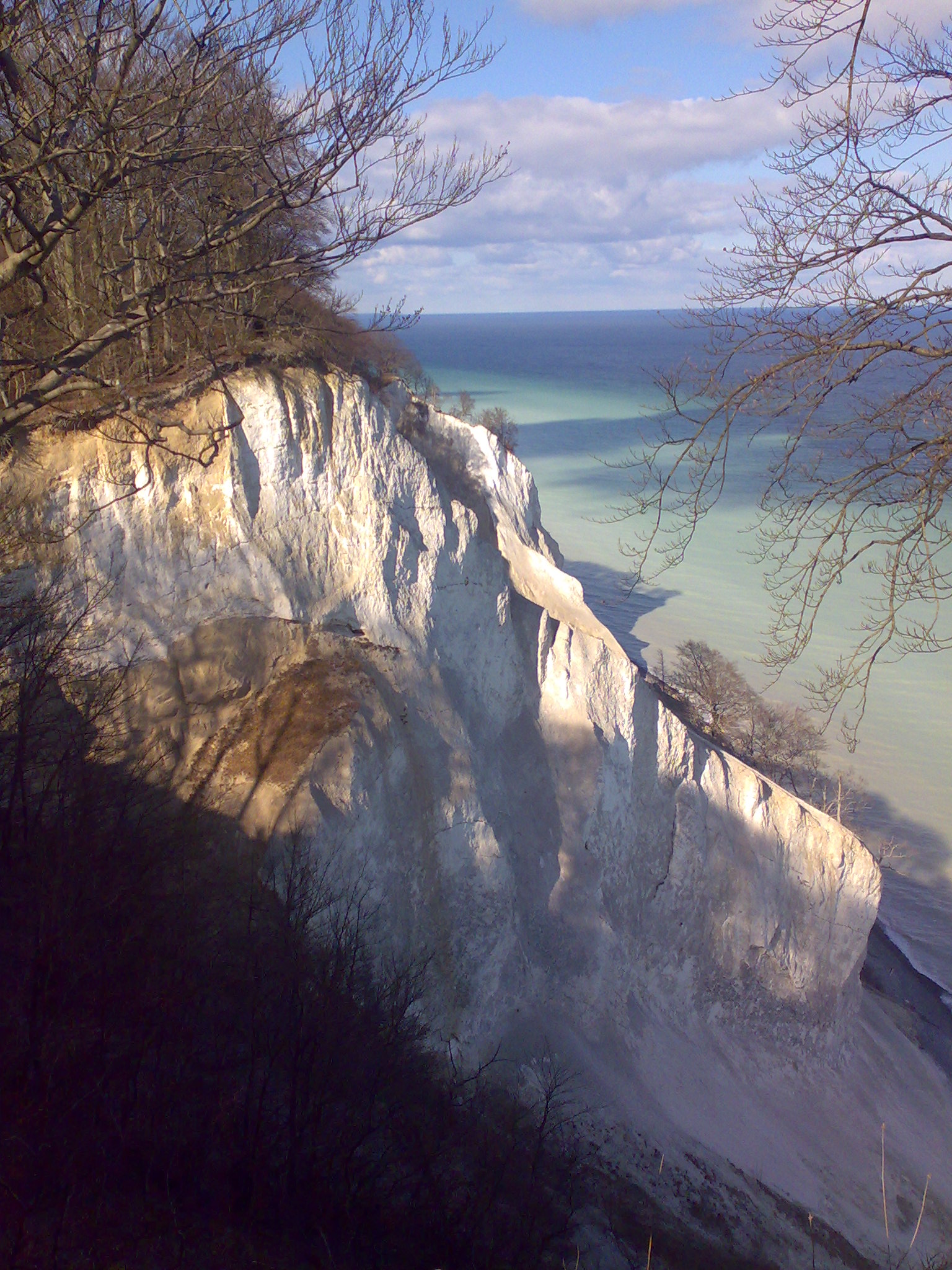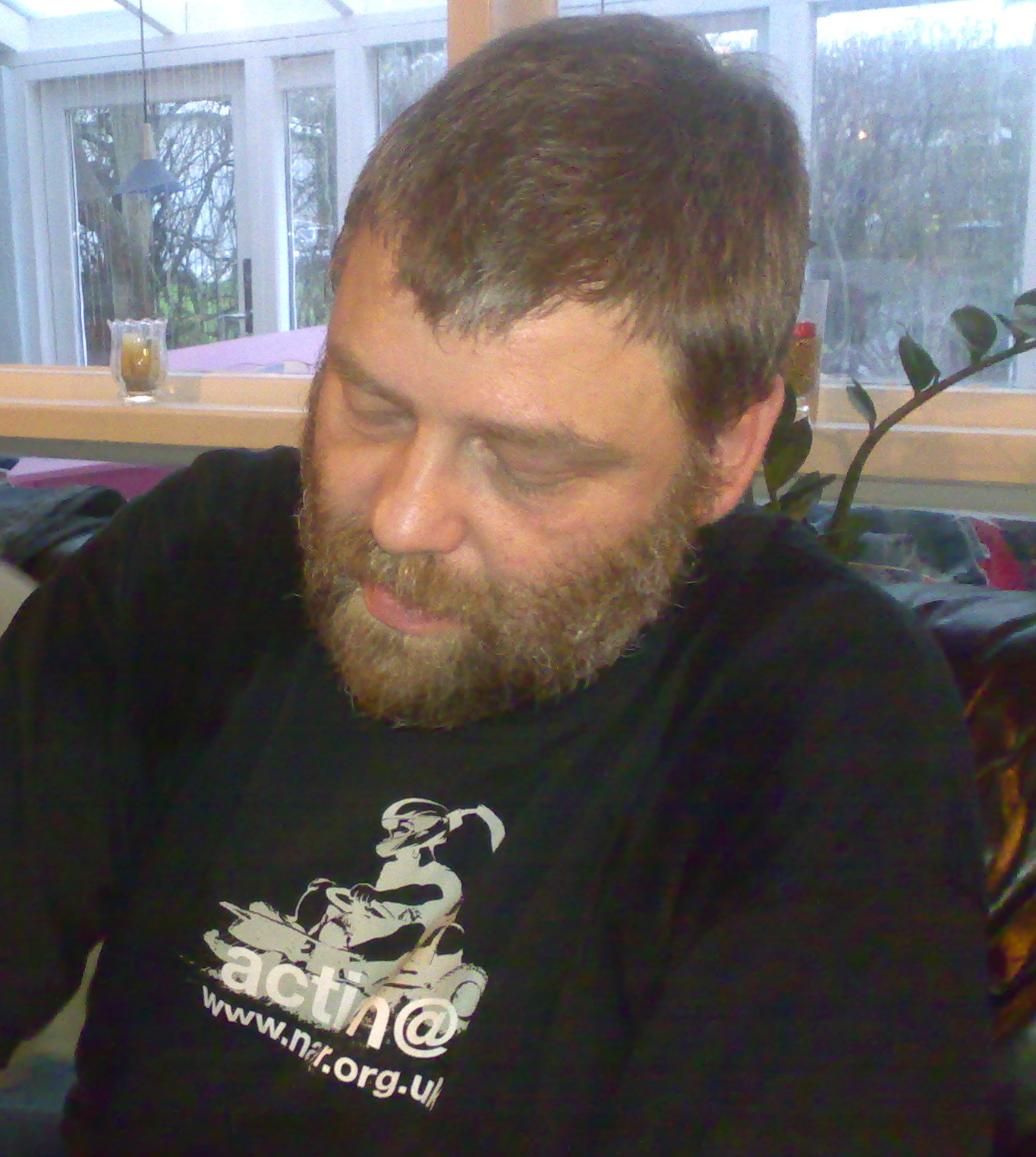About me
 Forchhammers
Point at the Cliff of Møn is named for my
great-great-great-grandfather, Johann Georg Forchhammer. He was a
geologist, firmly convinced that we would find oil on Bornholm, and he
became the second director of the School of Polytechnics (now the
Technical University of Denmark) after Hans Christian Ørsted of
electromagnetic fame.
Forchhammers
Point at the Cliff of Møn is named for my
great-great-great-grandfather, Johann Georg Forchhammer. He was a
geologist, firmly convinced that we would find oil on Bornholm, and he
became the second director of the School of Polytechnics (now the
Technical University of Denmark) after Hans Christian Ørsted of
electromagnetic fame.
My name is Troels Forchhammer. I was born some time in the autumn of 1966
when television was black and white, the Woodstock festival was in the
future, computers were the exlusive domain of weird scientists and nobody
had even dreamt about the internet. I am the son of Ole and Lis
Forchhammer with whom I had a childhood that I remember with joy.
The all-important and very earliest to influence you is, of course, your
parents. I can look my mother in the eys and tell her that she has the
son, she has helped create. To the rest of you: it ain't my fault.
The next important formative element of my childhood entered when I had
turned seven and I started as a scout. My years in scouting have affected me
and my
outlook in more ways that I can count, and I am still unable to stay away
from scouting for longer periods — I believe my record is a couple
of years without an active ‘job’ in scouting.
You grow and your development grows subtler. The broad strokes that laid
the foundation are replaced by ever subtler strokes when the details are
filled in. My love for physics started early, and long before I went on
from Fløng Skole. My
plans were in place: first three years at Høje
Tåstrup Amtsgymnasium (as it was known in those days — for
more
information about the Danish Gymnasium, please see the pages at the Ministry
of Education), then on to the Royal Danish Navy, and from
there to the study of physics at the University of Copenhagen. I
graduated as a Master of Science in 1994, though the subject of my master
classes wasn't exactly the same as I had imagined fifteen years yearlier.
The third of my defining loves is my love for the works of the English
author, J.R.R. Tolkien. I don't recall when I first
read either The Hobbit or The Lord of the Rings, but these
books have been with me since childhood, first in Danish and later in
English.
At the brink of manhood, I found my lovely future wife, Grethe, in 1983
— at a training for scouts, of course. We were married at the
national jamboree in 1989 and in 1991 we had our first son, Bjarke, who
has been followed by two more sons, Sune (1995) and Thor (1997) and a
daughter, Ea (1999). Though foremost in my heart, my family is,
chronologically, the fourth of my defining loves after scouting, physics
and Tolkien.
During my studies, I got a job in the decorating department of the Obs
warehouse in City 2, Tåstrup. The lack of challenging physics was
easily outweighed by the marvellous people I got to work with. Decorators
are wonderful and fun to be with, and we had a good atmosphere in the
department.
Having obtained by Master's degree in 1994, I tried to get a scholarship
to move on to the Ph.D. but I soon realized that this wasn't going to
happen. Going by the way of some short stints as a substitute teacher and
some other detours, I found myself teaching at Rødovre Gymnasium
in the spring of 1996. I had three good years at Rødovre teaching
physics and general science. Unfortunately it could last, among other
reasons because my degree only gave me formal teaching competences in
physics (which is not the same as saying that I wasn't competent to teach
science …). I have since reconciled myself to it, but at the time I
found it foolish to answer my application for a dispensation from the
rules by specifying the selfsame rules — why on earth did he imagine
I was applying for a dispensation? Well, in the summer of 1999 I stopped
teaching.
 In the living room, a day in December 2007
In the living room, a day in December 2007
Fortunately it wasn't difficult to find a new job in 1999 if you had tried
programming. This was while the dot-com bubble was still growing bigger
and bigger and the stock-prices were outpacing Moore's law, doubling every
six months. Therefore I soon found myself in Søborg where I was to
design software for a PCI satellite card. I was, specifically, to make an
application that would display ordinary satellite television on the PC
monitor. The small Danish company Cocom A/S was soon after acquired by US
giant Cisco Systems, and we were invited to a lavish acquisition party in
the old Copenhagen Exchange
— in those days the sky really was the limit in the IT business.
Not long after the acquisition, I was relocated to another project. Now I
was to do test-software for our new project: a line-card for a Cisco
cable-router. This software was to be used for the whole life-cycle of the
line-card, from hardware wake-up and debugging to production test, FPGA
programming at the production line and for field diagnostics. This was an
exciting time, when my experiences from experimental physics were once
more applicable, and I discovered, or developed, a passion for testing.
When Cisco, in the summer of 2001, decided to stop the development
activities in Søborg, it was natural for me to look for another
position in testing, and I quickly found myself in another small Danish
upstart company where I was responsible for the test of an ASIC network
processor at IP Semiconductors A/S. However, it was the summer of 2001 and
the attacks on New York and Washington were just round the next corner,
dealing the final death blow to the dot-com bubble (which had been
shrinking ever since April 2000). The company stayed alive a little less
than a year after 11th September 2001, and I now found myself
at the street again richer only by a considerable wealth of experience.
It was to be ten months I got a new job the following summer, 2003. This
time at Nokia Danmark, where I was to work again with development of
hardware tests. At that time I didn't know much about RF, but I knew a lot
about testing, and I soon started to work with the analytical aspect of
testing: test planning, test design and test result analysis.
In that way we have now established a good set of tools for analysing our
tests. Applying these tools, we have built a much more thorough knowledge
of the tests: what is happening during the test, how do the test results
behave, what are the uncertainties etc. It has been both exciting,
educating, and, I admit it, a real pleasure to be a driving part of this
development, and I usually boast that I am getting paid to do my hobby (or
one of them, at least), which is to be a nerd par excellance.
Kind regards
Troels Forchhammer
(Updated on 2009-06-05)
 Forchhammers
Point at the Cliff of Møn is named for my
great-great-great-grandfather, Johann Georg Forchhammer. He was a
geologist, firmly convinced that we would find oil on Bornholm, and he
became the second director of the School of Polytechnics (now the
Technical University of Denmark) after Hans Christian Ørsted of
electromagnetic fame.
Forchhammers
Point at the Cliff of Møn is named for my
great-great-great-grandfather, Johann Georg Forchhammer. He was a
geologist, firmly convinced that we would find oil on Bornholm, and he
became the second director of the School of Polytechnics (now the
Technical University of Denmark) after Hans Christian Ørsted of
electromagnetic fame.
 In the living room, a day in December 2007
In the living room, a day in December 2007
